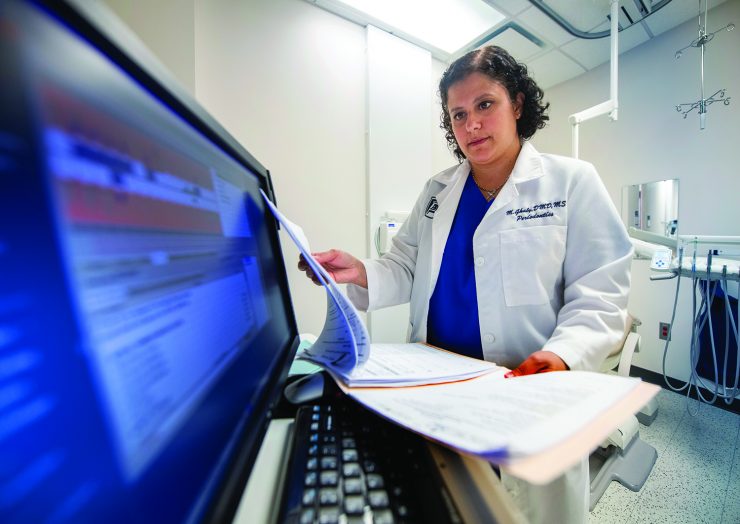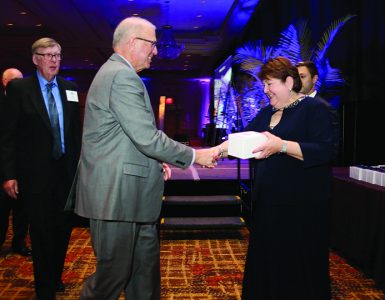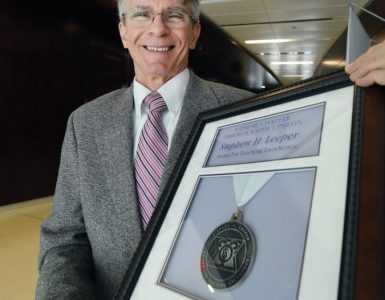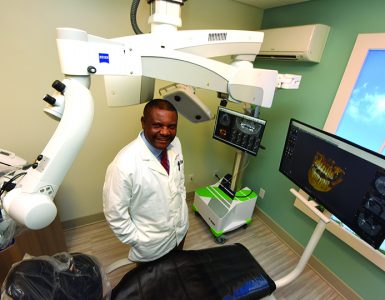When Dr. Mira Ghaly joined the DCG faculty in 2016, she was thrilled to be in an environment conducive to her loves of both teaching and learning.
“I’ve always been interested in sharing my knowledge with others,” says Ghaly, assistant professor in the Department of Periodontics and program director for Advanced Education in Periodontics Program.
After several years of private practice in Canada, she believes she has much to offer. “It’s wonderful to help patients achieve good outcomes,” she says, noting the importance of gum health to overall wellness. “The oral cavity is the entrance to the rest of the body, so a healthy mouth benefits the entire body.”
She and her colleagues — along with the students and residents they help educate — address every aspect of gum health in treating patients. Those whose periodontitis (gum inflammation) has led to tooth loss, for instance, may be candidates for implants. If the diseased tissue has destroyed bone, bone grafts are often a viable option. The DCG team can also transplant tissue when denuded roots lead to tooth damage and sensitivity, and resection is an option for patients with excess gum tissue.
As Ghaly and her colleagues are teaching students and residents, they are also teaching patients. Good hygiene and proper brushing and flossing techniques can help prevent many gum issues. Other factors, such as genetic predisposition, are largely beyond a patient’s control yet still treatable. “It’s very rewarding to see the transformations we can achieve, often both health-wise and esthetically,” Ghaly says.
Ghaly, who earned her dental degree from the University of Montreal and completed periodontics training at Baylor University in Dallas, Texas, learns more every day herself. For instance, she and her colleagues are researching patients’ pharmacogenomic profiles (the genetic makeup that determines how their bodies metabolize drugs) to optimize medication delivery during sedation and recovery. “Drugs are titrated during sedation, meaning the dosages can be adjusted as needed,” Ghaly says, “and we hope our study will determine whether the patient is a slow or fast metabolizer of the drugs. This will help us optimize the timing of ‘bumps,’ or increased dosages during surgery.” The results, she says, should be applicable to many kinds of surgery.
Her department is also evaluating the periodontal status of kidney transplant patients both before and after the procedure. They hope to better understand how to optimize the patients’ oral health, minimizing the risks of infection or other complications as they complete the transplant journey.
For more information about services available in the Department of Periodontics, call 706-721-2442.










